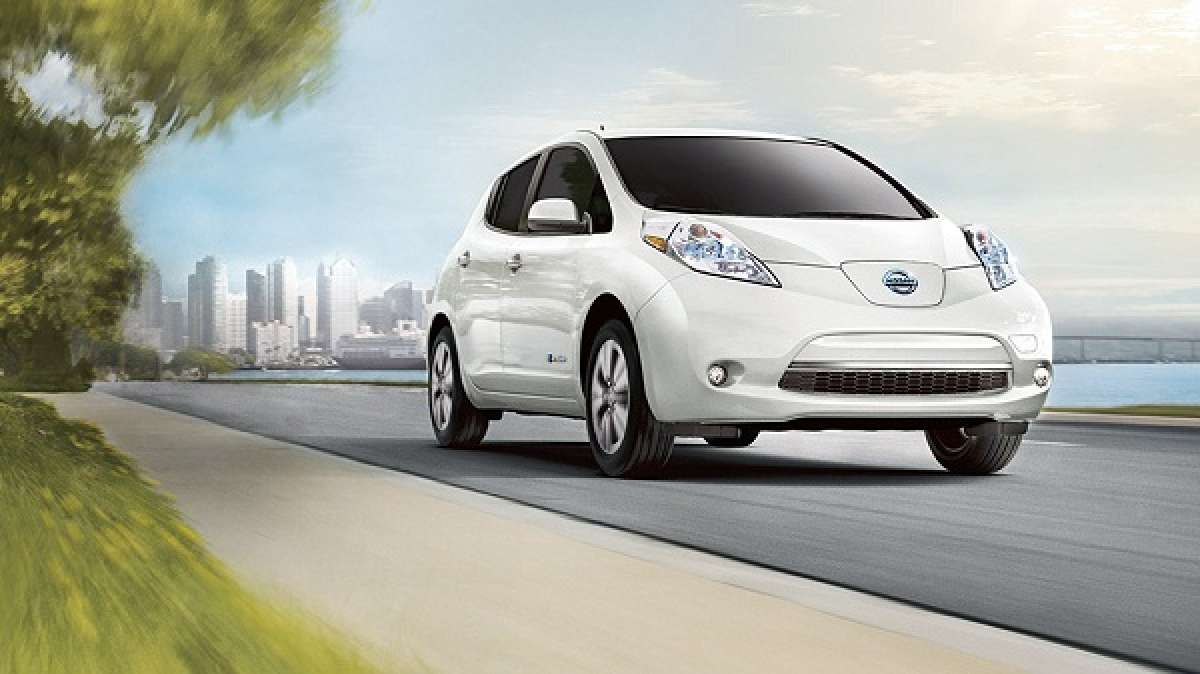If you read media outlets like Time or Automotive News, you would be forgiven for thinking that hybrids and electric vehicles are one and the same. “Alternative-fuel vehicles,” they are labeled. Recent news about falling gas prices – and flattening alt-fuel vehicle sales – leave the impression that both hybrids and electric vehicles are doomed for the next year or so.
Falling gas prices = tougher sell for fuel-efficient vehicles
To an extent, it makes sense. As Automotive News reported, the national average price of gasoline was just $3.14 on October 17, the lowest level since February 2011. Gas prices drop every fall with the switch to winter blends, but this trend may persist. The U.S. Energy Information Administration projects that average price of a gallon of gasoline will drop from $3.45 this year to $3.38 in 2015.
Obviously, this is not particularly helpful to sales of vehicles whose main virtue is efficiency. Electric vehicle sales have been known to loosely reflect spikes in gas prices, while cheaper fuel sends Americans clamoring for pickup trucks and SUVs. The combination of cheaper gasoline and more fuel-efficient conventional vehicles means the value proposition for more expensive conventional hybrids in particular is shrinking along with their fuel economy advantage.
Never mind the fact that we seem to be extraordinarily short-sighted as a nation – Americans change their car-buying habits based on weeks or months of gasoline price trends, when they have absolutely no idea what gas will cost even two years from now – and the fact that we live on petroleum easy street compared to Europe. Alternative-fuel vehicles are at the mercy of gas prices, but to what extent?
More damaging to hybrids than EVs
Again, articles like this one found at Time leave the impression that electric vehicle sales have leveled off in 2014 along with their hybrid counterparts. Edmunds.com analyst Jessica Caldwell is quoted as saying, “The whole automobile market has grown...we’re not seeing electric vehicles as part of that growth.”
Admittedly, conventional hybrids such as the Toyota Prius have not been doing particularly well of late as their operating cost advantage erodes. The Chevrolet Volt is also seeing lower sales numbers this year than last, partly due to anticipation of the 2016 redesign. However, the electric vehicle market as a whole (excluding non-plug-in hybrids) is actually doing quite well despite the low gas prices.
While the auto industry as a whole has grown in 2014, it does not come close to matching the growth of electric vehicles. Led by the Nissan LEAF, up 36% this year over 2013 sales; the Ford Energi/C-Max plug-ins, up a collective 107% year-over-year (albeit somewhat misleadingly, as the Fusion Energi didn’t go on sale until February 2013); the BMW i3, which topped 1,000 sales the last two months; and even the Toyota Prius Plug-In, which despite a dismal September is up 48% this year; even despite lower numbers from the Volt and Tesla’s Model S, which has given a lot of attention to the European and Chinese markets this year, the overall electric car market has grown by 28% in the United States so far in 2014.
Electric vehicles have demonstrated year-over-year increased sales in literally every single month since their introduction in late 2010. That doesn’t sound like a flat market, which is why it is more than a little irritating to see electric vehicles lumped in with the stagnant market for conventional hybrids, even if both are affected by gas prices.
Cheap gas may slow growth of the EV market, but it won’t stop it
If gas prices were trending in the opposite direction, or our government had the spine to raise the road-repairing federal gasoline tax that has remained the same since 1993 despite inflation and recent gains in fuel efficiency, we would probably be seeing higher growth in EV sales.
Even with cheap gas prices, however, there are plenty of reasons to buy an electric vehicle: the great performance of electric motors, the quiet ride, the convenience of plugging in at home, the reduced carbon footprint, the “cool” factor, and low maintenance costs all make EVs an attractive option no matter what the price at the pump is.
That said, offsetting the premium in sticker price sure is much easier if your neighbors are paying north of $4.00 per gallon to fill up. Unfortunately, it looks like those days won’t be returning very soon.






Comments
I'm not 100% convinced that
Permalink
I'm not 100% convinced that lower gasoline prices will slow EV sales. Even with gasoline at $3 a gallon the EV still commands a large fuel price advantage over gasoline or diesel. Sales of the Tesla Model S don't seem to be impacted by gasoline prices. Volt and Leaf sales may be slowed because GM and Nissan have announced improved versions of their cars are in the pipelines.